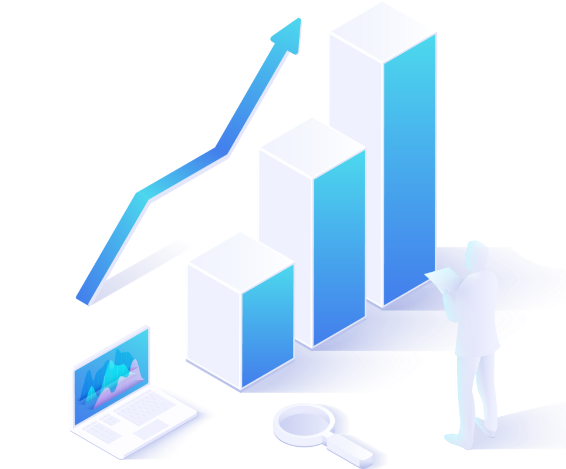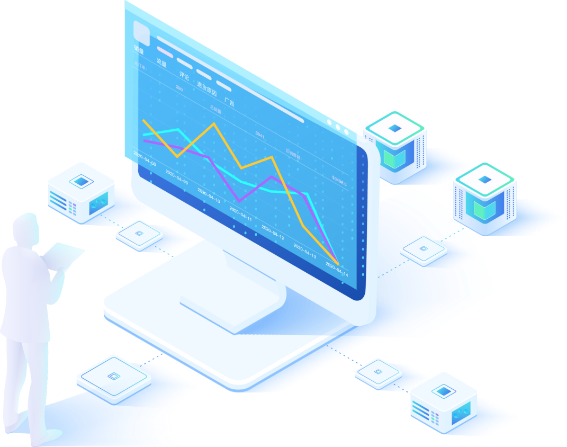Industry Solutions


In recent years, government cloud platforms have played an increasingly important role in supporting the electronic government's intensified construction and promoting the sharing of government information. A series of important documents such as the "National Electronic Government Master Plan" and the "13th Five-Year Plan for the Development of Government Information Technology Construction" have clearly stated the need to strengthen the construction and application of government cloud platforms.
The government cloud utilizes the existing computers, networks, and information resources of the government to provide various facilities and resources operation security and information service platforms for the government industry. In order to effectively promote interconnection and business collaboration among government departments through a unified standard and avoid the occurrence of "information islands".
The use of cloud computing platforms can provide internal support for various IT systems, business platforms, and external public basic cloud service products and industry customer clouds "external service cloud"; provide 4-7 layer application delivery functions through the "cloud" application delivery resource pool, improve manageability, simplify deployment, have higher flexibility, improve resource utilization, and also significantly reduce costs.
Therefore, when building a government cloud platform, the application delivery system should have the following:
1、Adopt the "cloud computing" mode to significantly reduce the cost of construction and maintenance.
The operation cost of data centers usually accounts for 25% of the total IT budget, among which the construction cost of hardware application delivery systems is even a considerable fraction of the annual government IT capital expenditure. Application delivery systems on the cloud need to have flexible resource pool allocation capabilities, improve application delivery system utilization rates, and promote network structure optimization and integration, so as to reduce both capital expenditure and cost expenditure of electronic government platforms.
2、Virtual servers need to cluster and improve application system processing capabilities.
Use professional-level application delivery systems to provide professional 4-7 load balancing functions for various business systems inside and outside the electronic government to ensure that the system has sufficient performance; at the same time, provide programmable traffic management functions that can flexibly customize traffic flows according to the special needs of application systems.


The VirtualAD series application delivery products of Hongji Technology are designed to adapt to the current development of data centers, network status, and rapid growth in demand for applications. The system adopts multi-core and multi-processor technology, which can provide high-performance 4-7 layer application processing capabilities. The exclusive SPOS operating system provides high performance and stability while ensuring the availability and reliability of applications through rich 7-layer features and flexible health checks. The VirtualAD products can run on VMware, KVM, and Hyper-V platforms, demonstrating high performance and stability.
The CloudMC management platform of Hongji Technology enables automatic deployment and flexible operation of networks in government cloud environments. It can manage hundreds of sets of application delivery controllers, achieve flexible allocation of application delivery resources, allocate application delivery resources according to actual business needs, dynamically expand or recall application delivery resources, and provide application delivery resource services throughout the entire lifecycle. With the help of the CloudMC management platform, it is easy to connect VirtualAD with cloud operation management platforms, flexibly allocate and recall bandwidth resource usage permissions for each VirtualAD, allow administrators to monitor and comprehensively analyze the use of VirtualADs, simplify operation, and reduce IT costs for government cloud platforms.

The system adopts multi-core technology, which greatly improves the processing performance of the SuperAD series application delivery devices. At the same time, the product uses a dedicated super parallel processing architecture, which greatly improves the processing performance of L4-L7 and meets users' current and future expansion needs.

The product fully supports virtualization technology, including device virtualization and virtualization operating systems such as Vmware and KVM. Through the pAPI and eRule interfaces provided by the system, it works well with OpenFlow and SDN to smoothly integrate ADC into the SDN network.

The product integrates multiple functions into one: it can achieve local server load balancing, link load balancing, and also implement global load balancing for multiple data centers. For some special and complex functional requirements, the system supports programmable script eRule, which can deeply customize user needs, which is difficult for many load balancing devices to achieve. These functions provide the device with high cost performance.

The system supports a rich load balancing function for L3-L7 application servers. Through deep analysis of application protocols, it can provide comprehensive application load balancing and content exchange capabilities. It also has a comprehensive application health check mechanism to timely diagnose servers or applications that are abnormal. The system has a cluster mode of primary-backup and multi-device groups to ensure the stability and continuity of enterprise applications.

The system can adopt encryption methods such as HTTPS and SSH for network management, avoiding the security risks caused by direct access to devices in plain text communication. The system also incorporates DDoS attack protection functionality. It can provide SSL decryption and encryption, and integrated with CA and client certificates to formulate flexible policies based on certificate identity for access and authorization.